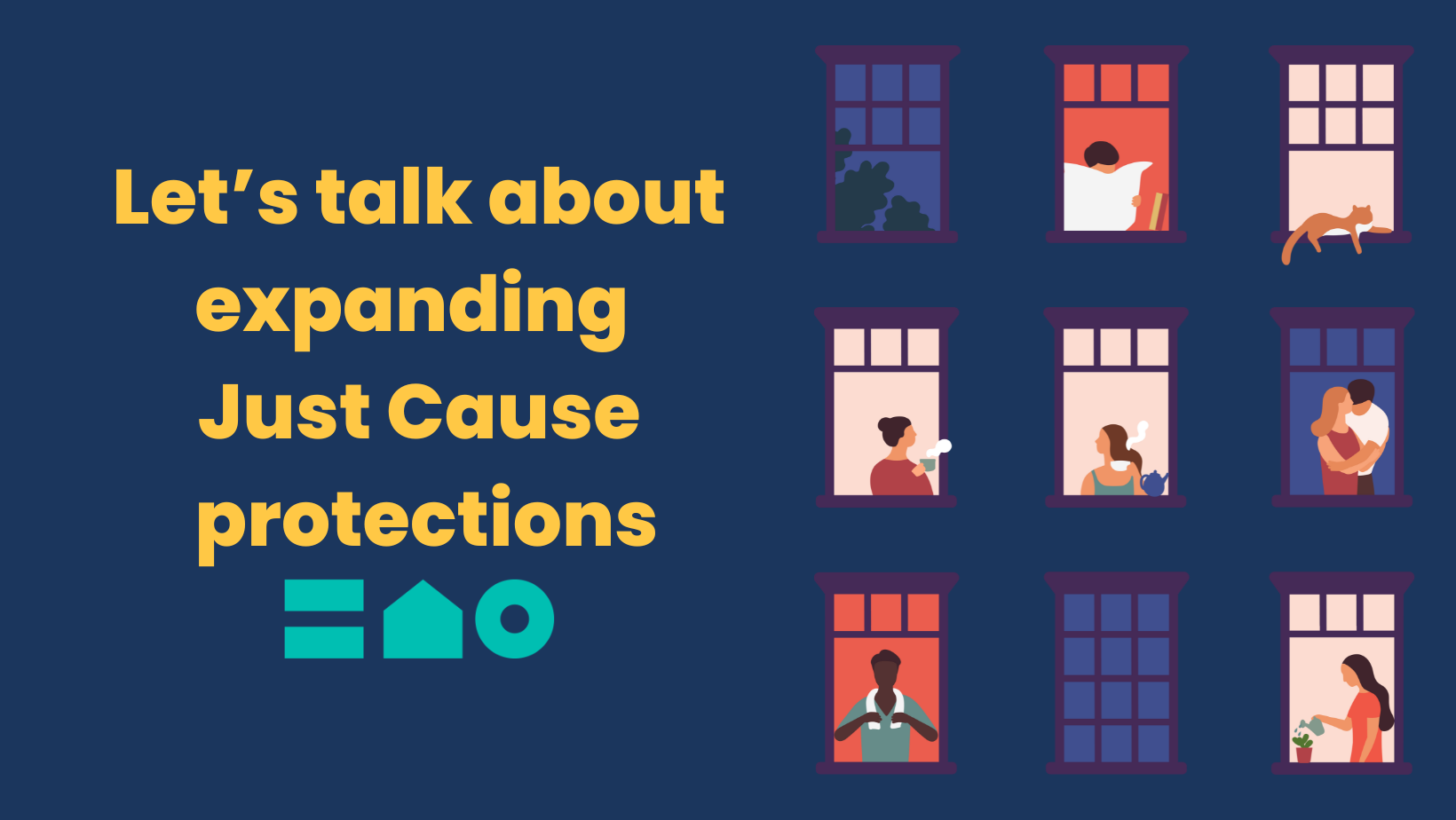What is Just Cause?
Just Cause requires landlords to have grounds for filing an eviction or refusing to renew a lease, like a tenant’s failure to pay rent or abide by the lease. For over four decades, Connecticut law has prohibited no-fault evictions against renters living in complexes with five or more units who are aged 62+ and/or have a disability. There are similar federal protections for residents in public housing or subsidized housing. Unfortunately, landlords can evict renters who aren’t covered by the current, limited just cause law from their homes on short notice by refusing to renew a lease or ending a month to month contract, , even if the tenant pays rent on time and does everything else “right”.
Why Should Connecticut Expand Just Cause?
Expanding Just Cause protections to all renters (except in owner-occupied 1 – 4 family homes) ensures residents can enjoy housing security and establish roots without fear of arbitrary displacement. New Jersey, New Hampshire, Oregon, Washington, and California have already implemented Just Cause protections. Broadening Just Cause is a no-cost, effective policy to reduce eviction and provide greater security to tenants.
Expanded Just Cause Prevents Displacement and Strengthens Communities
- Just Cause protections significantly decrease arbitrary eviction. Just Cause expansion will reduce evictions by ~11% and reduce lease non-renewals & no-fault move out notices even more.
- Evictions have a detrimental impact on individuals’ employment, mental health, physical health, and children’s education. Evictions worsen housing insecurity, increase homelessness, and make communities less stable, cohesive, and safe.
Just Cause Prevents Housing Discrimination
- No-fault evictions are often motivated by illegal discrimination based on race, family status, disability, or other protected traits. People of color and women are disproportionately impacted by eviction – CT’s Black and Latine renters are 2-3x more likely to be evicted than white renters.
- It can be difficult for renters to prove a no-fault eviction is discriminatory. Thus, many tenants leave their homes before a no-fault eviction is filed to avoid permanently damaging their record, even if the eviction may be discriminatory or retaliatory.
Just Cause Ensures Tenants Can Assert Their Right to Safe Housing
- Unscrupulous landlords refuse lease renewals and file no-fault evictions to intimidate renters from asserting their rights to safe living conditions and respectful treatment. Many renters fear losing their homes if they ask a landlord to make repairs or report unsafe living conditions issues.
- Tenants who seek to form tenant unions know they risk no-fault eviction for doing so.
- Just Cause ensures tenants can assert their rights and form tenant unions without facing a retaliatory eviction that will force them from their homes and permanently damage their records.
Landlords Are Protected Under Expanded Just Cause
- Even with expanded Just Cause protections, landlords may evict tenants where there is justification. Grounds for eviction include:
- nonpayment of rent,
- lease violations,
- refusal to agree to reasonable rent increases,
- the landlord’s permanent removal of the unit from the housing market, or,
- bona fide intention of the landlord to use the property as their principal residence.
- Expansion of Just Cause protections would not apply to owner-occupied 1-4 families, i.e., small landlords wouldn’t be affected.
You or your organization can sign on to the campaign to expand just cause eviction protections here: https://bit.ly/justcausepetition
If you have additional questions about Just Cause Protections, contact Sarah White at the Connecticut Fair Housing Center.


